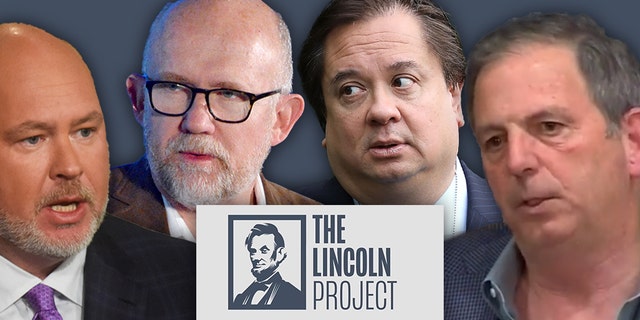

And those situations are real and problematic. The “never Trump” movement isn’t in great shape: Again, it’s easy to focus on the setbacks – political, legal and financial – facing the former President. But all those blue checkmarks didn’t seem to amount to much in actual election results.ģ. What the Lincoln Project had was many of the most influential Democrats and liberals on Twitter touting and amplifying its efforts. Their ads were inside-the-Beltway terrible and they clearly pocketed most of the cash rather than putting it onscreen.” As Steven Law, who runs a prominent Republican Senate super PAC, noted (on Twitter!) recently: “We ran against in every one of these races.

Every video (or at least most of them) went viral.īut the reality in actual races where the Lincoln Project was involved seemed to be very different. Almost every tweet drew thousands of likes and retweets. Twitter isn’t real life: To follow the efforts and antics of the Lincoln Project on Twitter during the 2020 election, you would be led to believe that this group was single-handedly beating Trump. But it does show that casting people as either heroes or villains also misses the real story.Ģ. This doesn’t make them evil, or make Trump any better.

And once they realized that they were sitting on a gold mine, they did absolutely everything to maximize it for personal gain. This was a business proposition – and money-making machine – for at least some of the members of the Lincoln Project. But at least in the case of the Lincoln Project, once the money and the attention started pouring in, the whole “principle” thing started to fade. There’s no doubt that many Republicans who refused to fall in line with Trump did so out of principle. The anti-Trump wing isn’t populated by angels: Given Donald Trump’s radical unorthodoxy during his term as president, there’s been a tendency to cast those Republicans who stood up to him and refused to capitulate to his bastardized version of conservatism as brave truth-tellers who took a stand on principle. In reading the coverage of the implosion of the Lincoln Project, I have several thoughts on lessons that its decline can and should teach us.ġ. There were clashes over ego and resentments over podcasts and television contracts.” Several had private firms to which the Lincoln Project channeled tens of millions of dollars that are then not subject to disclosure, while others were paid relatively modest amounts directly or nothing at all. Some of the co-founders had an informal management agreement that excluded the others, without their knowledge. “The interviews depict an organization that grew quickly, with little planning at its inception, and then began to spiral out of control as its founders quarreled over the organization’s direction, finances, tactics and even who would own the donor data that the project would eventually amass. In a terrific story about the group by The 19th’s Amanda Becker, her reporting suggests the chaos – and self-dealing – is everywhere: Steve Schmidt, another co-founder and perhaps the Lincoln Project’s most high-profile member, resigned last Friday – to, in his words, “make room for the appointment of a female board member as the first step to reform and professionalize the Lincoln Project.” The Lincoln Project decided to attack Horn on her way out the door. (Other reporting, most notably by the Associated Press, suggests that the leaders of the group were told of at least some of the allegations in 2020.)Ĭo-founder Jennifer Horn resigned from the group earlier this month citing, among other things, Weaver’s “grotesque and inappropriate behavior” and a difference of opinion about the group’s future direction. The group announced it was bringing in an “outside professional” to look into the allegations, which they said they were unaware of until very recently.
Lincoln project twitter series#
It began with a series of allegations made by young men that Lincoln Project co-founder John Weaver had sexually harassed them. THE POINT - NOW ON YOUTUBE! In each episode of his weekly YouTube show, Chris Cillizza will delve a little deeper into the surreal world of politics.


 0 kommentar(er)
0 kommentar(er)
